#Azeri man
Explore tagged Tumblr posts
Text

Ilham Aliyev
#suitdaddy#suiteddaddy#suit and tie#suited daddy#silverfox#suited grandpa#suitedman#suitfetish#suit butt#suit ass#suited butt#suited ass#suit daddy#buisness suit#suitedmen#Azeri man#Azeri men#azerbaijan#ilham aliyev#İlham Əliyev
12 notes
·
View notes
Text
if you're armenian and youre reading this i love you ♥︎
#mixed or diaspora or homelanders or adopted i love YOU.#every armenian ive met has been so sweet and extended their arms out to me as an azeri to bond over our culture#i sound like a 40 year old woman whenever i talk about my culture or azeri politics but genuinely.#we can have pride in our country without the genocide and war on yours. from the bottom of my heart i want to apologise for what our regime#has done to your people and generations. its gonna sound liek some hippy shit but hinest to god i hope our people can find#peace together and coexist. at the very least.#i sewed an azerbaijan patch on my bag and my mother told me not to because 'the armenians are so cruel'#(we live in emgland) but people can only be vindictive if you fucking deny their genocide and continue to#support the man who wants to continue it. and im returning the kindness that armenian strangers ahve given me#ANYWYAS. ԵՍ ՍԻՐՈՒՄ ԵՄ ՔԵԶ! if youre armenian an dreading this i will draw u something. as a treat.#✂️
7 notes
·
View notes
Text
I literally need to complain abt everything on here or I’ll die
#writing this on the plane so will probably release from drafts when we land#but yeah#um so the guy next to me on the flight is so fucking annoying#listening to whatever bullshit is on his phone out loud … havent we suffered enough#um what else.#the really expensive makeup that my aunt bought me for once was like ten shades too light#bc she got me and my sister the same shade… in what world…#I was serving clown#it’s a foundation but ig I’ll use it like a concealer#managed to make it look normal after ages then my cousin was like ‘take it off’ 🙃#but it’s crazy tho bc it makes it look like my skin is perfect…#maybe my makeup skillls are improving after watching reels tho that is also a possibility#um what else. girl I am sooo tired#I’ve managed to sleep in like 5 minute increments on the flight#I have not slept in like . um.#might have been more than 24 hrs by no#but I’ll sleep well when I get there hopefully#bc it’s 3 hours ahead .. meaning you have to sleep earlier and wake up earlier… my nemesis#guys I’m so irrationally annoyed at this man next to me .. could you not have been a handsome azeri boy my age 🫠🫠 (delusional)#my illegally downloaded music is serving me well#there’s 3 more hours to the flight and I’m on 70% charge#so 🫡 just have to hope we make it#also have podcasts downloaded so will pursue
3 notes
·
View notes
Text
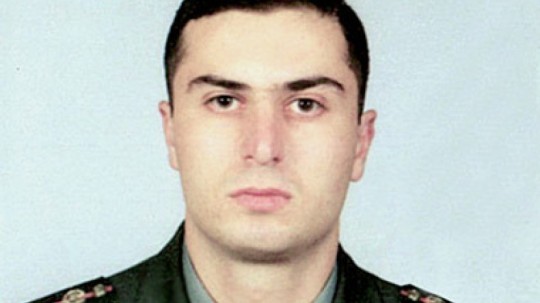
On February 19, 2004, 26-year-old Armenian Army Lieutenant Gurgen Margaryan was asleep in his room in Budapest, where he had come to participate in a NATO-sponsored Partnership for Peace program — a mission meant to promote cooperation and understanding between nations. But instead of peace, he met unimaginable brutality.
In the dead of night, azeri officer ramil safarov crept into his room, armed with an axe. Without hesitation, he delivered 16 savage blows to Gurgen’s defenseless, sleeping body, brutally hacking him to death. Sixteen times. Sixteen blows to a young man who never even had a chance to defend himself. Sixteen blows of pure hatred by a cowardly bastard from a tribe bred to hate and ravage.
And what did safarov do after this unspeakable crime, you'd ask? He didn’t deny it. He didn’t hide. He proudly admitted to the murder, claiming he had done it simply because Gurgen was Armenian. He even declared that if given the chance, he would have killed another. No remorse. No regret. No shame.
This is how Gurgen's Hungarian roommate, Kuti Balash, remembers the evening before the murder: “Gurgen and I were sharing a room at the dormitory. The evening before the murder I was watching a football match between Armenia and Hungary, while Gurgen was sitting at the desk preparing his homework. He just came back from the gym.” Staying with them on the same floor were participants of different nationalities, including ramil safarov and another azerbaijani officer. Balash mentions that there were no conflicts among any members of the group. The subject of international conflicts was discussed only once, during the first day of getting acquainted, but nobody spoke of it afterwards.
On the evening of February 18, Balash had tea and went to bed, as he had fever, while Gurgen Margaryan kept on studying. Around 9:30 p.m. Margaryan went to visit another program participant from Armenia, Hayk Makuchyan, who was staying in another room.
Balash does not remember when Gurgen came back, but early in the morning he felt that someone turned on the light. He thought it was Gurgen returning to the room, but after hearing some muffled sounds, he turned his head away from the wall and saw the azerbaijani officer standing by Gurgen’s bed, with a long axe in his hands.
“By that time I understood that something terrible had happened for there was blood all around. I started to shout at the azerbaijani urging him to stop it. He said that had no problems with me and would not touch me, stabbed Gurgen a couple of more times and left. The expression of his face was as if he was glad he had finished something important. Greatly shocked, I ran out of the room to find help, and ramil went in another direction.”
What happened next testifies that the murder had been planned in advance. It was not a crime of a personal motivations between Gurgen and ramil. Immediately after murdering Lieutenant Margaryan, ramil safarov went to the room of the second Armenian officer, to finish with him as well.
That morning, after committing his first murder, ramil went to Makuchyan's room with an intention to kill him. In the corridor, meeting a classmate from Uzbekistan who came out of the room after hearing suspicious noise, ramil offered him to come and assist him in killing the second Armenian. The Uzbek tried to calm the murderer down but did not manage to stop him.
Afterwards everyone confessed that they were frightened to approach ramil with a blood-stained axe closer than at three meters. Approaching Makuchyan’s room, ramil tried to open it by shaking its handle. As Makuchyan confessed, he usually had a habit of locking doors, unlike Gurgen, but that night he forgot to do it, and the door was locked by his Lithuanian roommate.
Being unable to open the door, ramil started to shout out Makuchyan's name in a threatening voice. Half asleep, Hayk went towards the door to open it, but his Lithuanian roommate managed to save him for the second time. He stopped Hayk from opening the door, as he thought that there was a real threat in safarov's voice and that he might be armed. To make sure, he phoned to another Lithuanian who lived at the same corridor asking him to check whether safarov was armed and what was going on at all. Meanwhile, safarov went to look for Hayk in the room of the Serbian and the Ukrainian roommates, showing them the blood-stained axe and stating that he thirsted for nobody's blood but Armenian. Hayk Makuchyan was told afterwards, that ramil ran to the room of another azerbaijani officer, told him something in azerbaijani, and then ran and stabbed the door of Makuchyan’s room three times with an axe. By that time the second Lithuanian and the police approached.
Justice? There was none. Though Hungary sentenced him to life in prison, in 2012, Hungary handed him over to azerbaijan, 'believing he would serve his sentence' (An investigation by a Hungarian news agency reveals that azerbaijan has used a $3 billion slush fund to facilitate safarov's release and extradition).
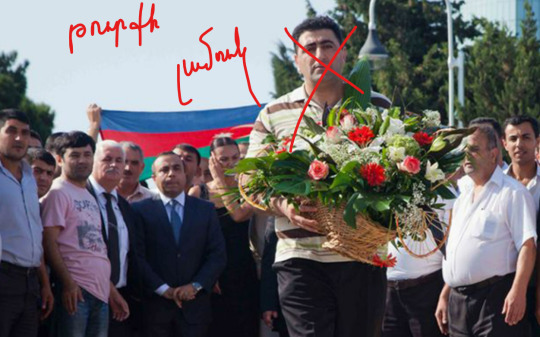
The moment he stepped onto azeri soil, safarov was greeted as a hero. A hero! Not only was he pardoned by azerbaijan’s president aliev, but he was promoted, given a home, back pay for his years in prison, and welcomed like a champion—for killing a SLEEPING Armenian.
So, if you ever find yourself sharing a space with an azeri, you'd better make sure the door is locked.
#break the chain of ignorance#my hands are shaking from anger typing this#Gurgen would have turned 47 this year#azeri crimes#hate crimes#armenia#armenophobia#world politics#azerbaijan#f1 gp baku#february
86 notes
·
View notes
Note
No one has been rlly paying attention to Azeri-Turk violence Artsakh Armenians have recently faced this September. Like thousands had to flee in exodus bc the enemy troops r v violently indoctrinated to hate Armenians, even if they r civilians. An example that is haunting is that an Azeri youtuber killed an older (?) Armenian civilian n he was celebrated for it. Armenians with an Armenian Passport r not even allowed in Azerbaijan without "special embassy clearance". I remember a few yrs back, the Azeri government even hired Syrian mercenaries to kill Armenians. Turkey has been doing similar things in Cyprus, although I suppose you could argue it's more "islamization of the culture" agenda than full out slaughter of the population.
The tragic experiences of Armenians throughout history are something that still receives too little attention, and I really wonder why. Perhaps the political climate of recent decades has made it less trendy to really care about the terrible fate of fair-skinned Christians than that of dark-skinned muslims. Just look at the disproportion between the number of random, ordinary people who support Palestine versus the number of people speaking about Armenians. It's probably another controversial opinion for which I’ll receive criticism, but I don’t care.
I remember working with an Azerbaijani muslim man who openly called for the killing of Armenians and shared Grey Wolves slogans on his social media. At the same time, he claimed that the Armenian genocide was fake news 🤡 It was disgusting. No one reacted accordingly when I reported his behavior to our employer, and it was a large international corporation that put a lot of emphasis on diversity and tolerance.
I'll leave the conclusions to you all.
11 notes
·
View notes
Text
A while ago I watched this documentary series (I think from ~2005) that included an episode on Nagarno-Karabakh. In addition to visiting N-K they also visited Azerbaijan and were given an official tour to visit some Azeris who were kicked out. The crew were shown these sympathetic poor Azeris who were kicked out by monsterous Armenian aggression, poverty-stricken in their refugee camps ... wait what??? It's been 15 years man, can Azerbaijan not get these people some apartments and jobs? What the fuck are they still doing in refugee camps?
16 notes
·
View notes
Text
AGDAM, AZERBAIJAN—In a clearing between overgrown grasses, Khalid Zulfugarov opens a stack of wooden crates, each filled with bright chunks of metal that glint in the winter sun. There are shells, anti-tank mines, and cluster bombs with tail fins. Nearby, next to a crater blown in the earth, a 20-liter water jug is filled with thousands of bullet casings, piled together like spare change, the collected relics of a conflict that has ravaged this land for 30 years.
Zulfugarov, the head of an Azerbaijani mine disposal team, is picking through his contaminated homeland, sifting through the soil with sniffer dogs and metal detectors to find each tiny, potentially deadly fragment. As he does so, his memories of Karabakh rush back.
“This is where I was born. I studied here; I fought with my friends,” he says.
His ancestral village is Nuzgar, which is located 50 miles south of Agdam, the area that he is currently clearing. It was once a bucolic settlement on the fertile lowlands of the southern Caucasus, mostly home to farmers who tended the rich, arable land. During Soviet times, it was part of the Nagorno-Karabakh oblast, home to ethnic Armenians and Azeris such as Zulfugarov, as well as the vineyards that produced the Soviet Union’s best-known cheap wine.
But when communism collapsed, so did the peace in Karabakh. Newly independent Armenia and Azerbaijan fought over the territory. Neighbors became enemies, and as Armenian paramilitaries gained control, Karabakh’s entire population of 700,000 Azeris fled.
For the next three decades, Nagorno-Karabakh was governed by an ethnic Armenian administration as the Republic of Artsakh, an unrecognized country. Its shrunken, monoethnic population lived up on the mountains at its heart. Down on the plains, the abandoned Azeri towns and villages were looted and closed off to the world, becoming a buffer zone between Artsakh and Azerbaijan. A de facto 185-mile border was carved into the landscape with berms, barbed wire, and land mines. What was once vineyards became a barren no-man’s land.
In 1993, Zulfugarov, then a 19-year-old Azerbaijani conscript, fled Karabakh to Azerbaijan proper. There, he worked in construction before joining the national demining agency. For the past three years, he has been clearing the land just miles away from his home village of Nuzgar, yet he is still unable to return.
In 2020, after 26 years of relatively frozen conflict, Karabakh’s war reignited. Azerbaijan had turned into a gas-rich autocracy, and grievances over its loss of Karabakh had become central to its national story. Baku wagered that the geopolitical timing was right, and over the first nine months of 2020, it pumped up its military arsenal with $123 million of Turkish-made defense and aviation equipment. On Sept. 27, Baku launched a surprise offensive and recaptured the lowlands. Three years later, it launched a second offensive and seized the main city, Stepanakert, too. Nearly all of the region’s entire ethnically Armenian population fled, just as the Azeris had three decades earlier.
On Jan. 1 of this year, the Republic of Artsakh officially ceased to exist. The land that was once Nagorno-Karabakh is now fully controlled by Azerbaijan.
War and occupation have stripped the landscape of life and color; the ruins of Azeri villages are now the same beige-grey as the scrubby undergrowth, the once-fertile soil riddled with metal from tanks, shells, and bullets. The pomegranate trees are among the few things that survived from the old times, bearing yearly fruit that hangs unpicked until it bursts blood-red.
The area remains closed to the public, but Foreign Policy was granted access by the Azerbaijani government. (We were not given permission to visit some areas we requested, and Stepanakert is currently closed to foreign media.) We spent five days in the region, being escorted through a huge reconstruction project unfolding behind a curtain of checkpoints: demining sites, new villages, roads and airports, and reforestation projects, all being readied for former residents to return.
The fighting in Karabakh is now over, and the Republic of Artsakh is no more. But a new conflict—this time, centered on the region’s landscape and the scars that war has inflicted on it—is now underway.
Since the beginning, nature has been both a victim to and a weapon of Karabakh’s conflict.
Nagorno-Karabakh is the water source for much of the southern Caucasus. Tributaries of the major Aras, Kura, and Tatar rivers run through the region’s mountains and down to the plains of Azerbaijan. The Soviet-built Sarsang reservoir—once the biggest in the region—fell under the control of Artsakh in 1993. In September 2013, Baku filed a case with the Council of Europe, complaining that Artsakh was misusing Sarsang and intentionally depriving 400,000 people in Azerbaijan’s border regions of water. Baku’s case succeeded: In January 2016, the council called for Armenian forces to withdraw from the area around Sarsang to allow international teams to assess and repair critical infrastructure.
When Karabakh’s hot war reignited in September 2020, the landscape quickly became a focus of misinformation. Huge forest fires broke out on the front lines in the far north and southwest of the territory and close to Stepanakert. Fires are common in conflict, but these blazes were immediately weaponized. Azeri social media accounts accused Armenians of torching the trees as they fled the advancing Azerbaijani army. Armenian accounts accused Azerbaijani forces of starting the fires with incendiary weapons to provide cover for their offensive.
“Nowhere else has environmental misinformation been used at this level. It’s just off the scale,” said Eoghan Darbyshire, a researcher at the U.K.-based Conflict and Environment Observatory. He analyzed open-source satellite imagery and climate data and found that while the fires were almost certainly related to the conflict, proving who had started them and how was far stickier than the absolutist social media posts suggested.
By November 2020, Azerbaijan had recaptured the Karabakh plains, and Artsakh conceded the loss. Stepanakert remained in Armenian hands, while the rest of the territory was left with Azerbaijan. Russian and Turkish peacekeepers monitored the cease-fire. Although combat was over, the environmental dispute only intensified.
Following the cease-fire, Azeris began trickling back to the Karabakh plains to visit their homes for the first time in three decades, only to realize that the whole area had changed. The lush hilltop forests had been hacked away, and the water in the once-clear streams smelled putrid. Agdam’s ancient Oriental plane trees, which had been protected as state monuments since Soviet times, had been felled, and their roots were scorched. Azerbaijani officials say that Artsakh’s government caused the destruction—through some combination of pillaging Karabakh’s hardwood forests, opening a gold mine that leached pollutants into the water, and simple vandalism.
In March 2022, Azerbaijan’s government invited the United Nations Environment Program (UNEP) to assess the Karabakh plains. The UNEP documented 2,000-year-old trees felled, once-cultivated farmland abandoned, 52 new quarries or mines opened under Armenian administration, and extremely high levels of heavy metals in the Okhchuchay River, which flows from Karabakh to Azerbaijan.
The report that the program produced was meant to be for internal use only, but the Azerbaijani government released it publicly, using it as the basis for a new legal challenge. In January 2023, Azerbaijan announced that it would be filing another case against Armenia with the Council of Europe, this time alleging breaches of the Bern Convention, which governs the conservation of European natural habitats and wildlife.
Meanwhile, in December 2022, Azerbaijani eco-activists began blockading Stepanakert with pickets on the Lachin Corridor, the sole road running from the rump state of Artsakh to Armenia proper. Their complaints were the same as those made by the government: that Artsakh was illegally destroying Karabakh’s habitats. Baku said the protests were independently organized, and media organizations connected to the Azerbaijani state invited journalists in to report. Baku also engaged public relations firms to spread the news of the Bern arbitration.
In April 2023, Azerbaijan built a permanent military checkpoint on Lachin, cutting off all traffic in and out of Stepanakert—as well as the city’s gas and electricity cables. For nine months, Artsakh relied solely on the Sarsang dam to generate electricity. As a result, the reservoir, which feeds springs to the Tatar River and supports migratory birds, dropped to critically low levels.
Foreign Policy requested but was not granted access to the reservoir, but photographs shared with FP show the reservoir’s decline over the course of 2023. Steppes of brown banks drop sharply to the new water level, some 20 meters (65 feet) below what it was before the blockade. The ground left behind is sticky and infertile.
Karabakh’s environment is now a cornerstone of Azerbaijan’s image campaign as it pushes to reconstruct and repopulate the region as quickly as possible. At the COP28 U.N. climate conference in Dubai in November 2023, Baku showcased its plans for the reconstruction of Karabakh from a display in its wood-trimmed pavilion, decorated with pictures of tranquil lakes and mountains.
Azerbaijani President Ilham Aliyev has promised that new hydroelectric dams in the region will be generating 270 megawatts by the end of this year, and that a solar farm capable of generating 240 megawatts will soon begin construction. New houses are being fitted with solar panels, and dams and climate-monitoring stations are undergoing restoration. Huge replantation projects are already underway to regrow lost forests, and native species, such as the Eurasian gazelle, are being reintroduced after decades of localized extinction. Baku has pledged to prioritize environmental and climate concerns during this process and has committed to a net-zero carbon emissions target in Karabakh by 2050, when the reconstruction is expected to be completed. Eventually, Aliyev says, Karabakh will turn Azerbaijan into an exporter of green energy.
“The great return will be a green return. We want to focus on the future, what we can improve,” Umayra Taghiyeva, Azerbaijan’s deputy minister for ecology and natural resources, told Foreign Policy.
In reality, Azerbaijan’s environmental imperatives are clashing with political and economic ones. On the ground, the region is mostly a construction site as new villages and towns, thousands of miles of roads and railways, and even two new airports are being built from scratch. Convoys of diggers chug through the ever-expanding arteries of this newly disturbed land, kicking up dust and petrol fumes.
In Agdam, they are starting to claw down the pomegranate trees to make way for the newly laid-out city. According to UNEP reports, waste from the demolition of old buildings is being poured into landfills, and the construction of new roads is destroying even more of Karabakh’s forests.
Much of what has been built already is Potemkin-like. Brand-new buildings, conference halls, and village squares are silent and underused—a jarring sight against the ruins of the old settlements. The first batch of former residents who have returned and resettled have been willing to withstand a strange isolation for the prize of coming home. Their rebuilt villages lie at the end of the ruler-straight new highways, about a four hours’ drive from Baku. The populations are still tiny—in the thousands overall. Most places, however, are still mined; independent experts and the Azerbaijani government have estimated that more than 1 million mines have been laid in the area. As of April 2023, only 7 percent of the contaminated land had been cleared.
The only commercial flights into the new airports thus far are transporting delegations from Turkey—one of Aliyev’s biggest allies—whose constructors have won major contracts in Karabakh. The construction company Kalyon, which is controlled by in-laws of Turkish President Recep Tayyip Erdogan, is building roads, while another in-law has won the contract to build an agropark—part of Baku’s ambitions to turn the once-agricultural region into a high-tech farming hub.
Baku will ramp up its green public relations drive later this year when it hosts COP29—a bid that it won with Armenian backing. Unsurprisingly, given that Azerbaijan is also a major petrochemicals producer, some see this public commitment to sustainability as little more than lip service. Its ambitious promises in Karabakh will undoubtedly be scrutinized under the spotlight.
“It is one of the more powerful examples of state greenwashing. In a different world they could create a new national park, and create employment through environmental projects and tourism,” Darbyshire said.
Aliyev has gained popularity from his victory in Karabakh and its reconstruction; many of the region’s newly returned residents proudly showed Foreign Policy their photos with the president. Today, however, there is almost no political opposition left in Azerbaijan, and critics of the war tend to live abroad in exile. But in less guarded moments, many Azeris working in Karabakh raise an amused eyebrow at the stark differences between the old land and the new.
Demining is expected to take decades, and full reconstruction—let alone rehabilitating the landscape—will take longer still. By the time the region is a fully functioning part of Azerbaijan, it will likely be unrecognizable from the idyllic place where Zulfugarov grew up. Reconstruction is yet to start in Nuzgar, which is still inaccessible, but he is certain that he will move back someday.
“I don’t think of what happened here, I think of what it will become,” he says, gesturing to the diggers working on the horizon. “In five or 10 years, this can be one of the most beautiful places.”
6 notes
·
View notes
Text
My 2024 Eurovision Top 37!!!
It's that time of year again! That time where I give my opinions on Eurovision that nobody asked for!
Is this an especially strong year for Eurovision? Eh. Yes and no. There's a lot of songs I don't like, more than there probably has been in any recent years, but there's also lots of songs I really like and would be happy if they won.
I think this is shaping up to be a very interesting year. I would argue that there is no clear and obvious frontrunner. Any winner is really probably going to feel like a "surprise", and most likely a pleasant one at that. There's a lot of songs here that feel like they'd be deserving winners, with no one really so clearly ahead of the pack to where it would feel like they were "robbed" if they lost.
But anyway, we're counting down, in reverse order, below the cut!
XX. ISRAEL - EDEN GOLAN - Hurricane
Ok, full disclosure, this is why I was kind of late to post my top. I haven't listened to this song. Frankly, I don't feel comfortable listening to this song. I don't know if I ever will. So, accordingly, I will not be giving it a rating, review, or ranking. I wish to make no further comment and please respect my decision.
Sorry for the downer start, but that's just how I feel.
36. SWITZERLAND - NEMO - The Code
I'm starting off controversial. I have no idea why this song is so popular in the community. I do not know what other people hear in this. To me, this just sounds like an annoying, disjointed mess.
35. LATVIA - DONS - Hollow
This song is a slow, dirgey wall of sludge. Sorry to this man, but I don't come to Eurovision to feel like I'm at a funeral.
34. BELGIUM - MUSTII - Before The Party's Over
This song is a slightly less slow, dirgey wall of sludge. I don't know, it feels like it's trying really hard to be artsy and ~important~
33. ICELAND - HERA BJÖRK - Scared of Heights
"I'm not one to take risks."
Yeah, Hera. We can tell. Jesus Christ. This song is so safe it feels like getting a lecture on abstinence at a Christian private school.
32. MOLDOVA - NATALIA BARBU - In The Middle
I like the chorus. Shame about literally everything else in this song.
31. ALBANIA - BESA - Titan
What's with the random banjos? Albania in its Folklore era.
30. AZERBAIJAN - FAHREE & ILKIN DOVLATOV - Özünlə Apar
As much as I want to give Azerbaijan bonus points for finally sending something partially in Azeri, I literally cannot remember a single note from this song and I relistened to it about an hour ago.
29. FRANCE - SLIMANE - Mon Amour
Every year at Eurovision be like
Eurovision: "Hey, France, how French do you want to make your entry this year?"
France: "Oui."
He's got a great voice but to me this is just a run of the mill, paint by numbers Eurovision ballad that is also French and mentions Paris.
28. GERMANY - ISAAK - Always on the Run
Okay I actually don't really care for this song at all, it sounds like the kind of generic, inoffensive, slight hint of country so they don't alienate the flyover states kind of song they make American Idol winners sing. He's only this high because I really like his voice.
27. MALTA - SARAH BONNICI - Loop
This is an average Eurovision song.
26. LUXEMBOURG - TALI - Fighter
This is an average Eurovision song.
25. GEORGIA - NUTSA BUZALADZE - Firefighter
By the time this song gets going, it really comes together. It finishes really strong. The problem is the first...half or so? It's a disjointed mess. But the fact that I like at least PART of this song so much is what puts it above all these other songs that are insta-skips.
24. LITHUANIA - SILVESTER BELT - Luktelk
Probably my next most controversial pick. I don't get the hype for this song? I mean, don't get me wrong, it's fine. I like it. But it's just, like...an average song in this genre? It's nothing special.
23. PORTUGAL - IOLANDA - Grito
This is probably a case where it's not the song so much as it's me not getting it. To my ears it sounds pleasant but dated. And slower songs are often fighting an uphill battle with me at Eurovision anyway so.
22. ARMENIA - LADANIVA - Jako
I really like this, it's the fun folk throwback of this year. The only problem with it is, it's basically just straight up folk instrumentation. It sounds very small as a result. It could have used just a bit more modern production to give it that real OOMPH factor.
21. NETHERLANDS - JOOST KLEIN - Europapa
I probably would have liked this song a lot more if I hadn't heard Finland first. Spoilers for later. Also maybe I'm just too Australian and not European enough to really be able to relate to this song.
20. UNITED KINGDOM - OLLY ALEXANDER - Dizzy
This song feels like a throwback to a lot of the kind of British pop music that would cross over onto the Australian charts here when I was a kid. Like, remember when Billie Piper was a pop singer? Remember Craig David? This song doesn't sound like either of those per se but it does sound like the kind of song that would be on like one of these albums that I have in a box in my garage somewhere

19. AUSTRALIA - ELECTRIC FIELDS - One Milkali (One Blood)
Listen, I love Electric Fields. I've seen them live, and they were great. And I love this song. It's very meditative, it gives some good kind of spiritual advice that I vibe with. I think the song is only this low because, well, the video is meh, and this kind of feels like a "safe" Electric Fields energy? It feels like they could have done more.
18. SERBIA - TEYA DORA - Ramonda
See even though this song is a slow ballad, it avoids being a dirgey wall of sludge because it actually has like dynamic range to it. It's mostly quiet and gentle, and it builds to a big high point. It doesn't just feel like a wall of melancholy sound slowly drowning me.
17. GREECE - MARINA SATTI - Zari
I think I'm not hip enough for this. I feel like I'm going to come back to this later and like it a lot more than I already do. And I do like this. It feels kind of like a Greek Russian Woman in terms of vibe, and I mean that as a compliment. This is really good. It just may be a bit too weird, too out there, and too current to really land at Eurovision. Like this song definitely feels like it belongs on the internet. This song has iPhone face.
16. SPAIN - NEBULOSSA - Zorra
I love her lack of energy, go girl give us nothing!
Seriously though, this song is for the girls and the gays. And as I am a girl and a gay, I can appreciate it. This song is about, no matter what you do, people are going to call you a bitch and try and drag you down. So she's like, OK, fuck you, I'm going to go take on the world, be an empowered woman, and be successful, and if that makes me a bitch then fine, I'm the best bitch here. And I think that's a good message, and I support it. Women shouldn't have to make themselves smaller so as to not threaten your insecurities.
15. CYPRUS - SILIA KAPSIS - Liar
There is just something absolutely FILTHY about this beat that makes me want to throw it back. Fortunately for everybody, I am incapable of throwing it back, so you don't have to be subjected to that. But, like, I feel it in this song. This beat does dirty things to me.
14. ESTONIA - 5MIINUST & PUULUUP - (Nendest) Narkootikumidest Ei Tea Me (Küll) Midagi
Every time this song comes on, I can't resist the urge to get up and start dancing to it, so it must be doing something right. But also fuck you for making me write a title that long.
13. SWEDEN - MARCUS & MARTINUS - Unforgettable
Swedes are too OP at pop. Like this song is basically perfect. Fortunately, I am too much of a lesbian to be nostalgic for boy band music. If I had been into the Backstreet Boys or N*Sync back in the day, this song would make me super nostalgic, and it would probably be my number one. But as it is I'm nostalgic for different things, and it's all those songs that are in my top ten this year. As you'll see.
12. UKRAINE - ALYONA ALYONA & JERRY HEIL - Teresa & Maria
Ukraine doesn't miss at Eurovision. If the Vidbir staging had like...any budget at all, this would probably be higher. That's really all that's holding it back. I love this song. It's great.
11. CROATIA - BABY LASAGNA - Rim Tim Tagi Dim
This was hard. I went back and forth with this and other songs in my top 10 so many times. If you ask me to make this list again five minutes from now, this is probably there. If this song wins Eurovision, I'll be happy. I love it. If there's anything holding this back in comparison to the songs in my top, it's: I'm more nostalgic for other genres apparently; there's no real vocal moment in this song; the production kind of sounds like this was made in Garageband? Don't take any of this to mean I don't like the song. I do. But I like this a roughly equal amount to like half of my top ten and I had to split hairs.
10. SLOVENIA - RAIVEN - Veronika
youtube
This is art, mama. This was the first Eurovision song I heard this year and it really started everything off on a good note. The insane vocal moment at the end is what kept this in my top 10 above Croatia. I cannot wait to see the staging because this has a vision.
9. NORWAY - GÅTE - Ulveham
youtube
This feels weird having it this low. It was my number four for the longest time. Like, until I made this list today. I think it's the verses holding it back for me. The verses are a little bit nothing. It's just a lot of "this happened, and then this happened". And that's the one thing that docks an execution point from this otherwise excellent song. But it's lovely hearing Norwegian at Eurovision for the first time in forever
8. AUSTRIA - KALEEN - We Will Rave
youtube
Things Badger is nostalgic for, entry #1 - Cascada, apparently. This is taking me back to playing fucking DDR at the Time Zone outside of Hoyts at Hornsby Westfield when I was like 15. This was one of the songs I was juggling with whether to keep in my top ten, asking myself "Do I really like this song as much as I thought I did the last time I played it?" So then I'd play it again, and every time I played it...I'd get this feeling. And every time we kiss, I swear I could fly.
Wait.
7. ITALY - ANGELINA MANGO - La Noia
youtube
OK, full disclosure, if I were ranking the songs "objectively" in terms of which one is the best, like if I were taking personal taste out of this and just telling you what song I think will or should win Eurovision, this would be my pick. This is by far the hippest thing Italy has ever sent to Eurovision. It's great. It's fun. It's fresh. It's vocally challenging but executed with unbelievable ease. Angelina Mango is style, she is fashion, she is an icon, she is the moment. She's everything. Also, BUSINESS PRINCESS. What more can you want?
6. CZECHIA - AIKO - Pedestal
youtube
Things Badger is nostalgic for entry #2 - late 80s/early 90s girl grunge rockers. This song is stuck in my head all the time, and it's awesome. You just want to scream out the chorus. Because, you know what, I relate to this. I am currently going through a phase of loving me more, loving me more than your bullshit. And it feels great. It's empowering. It's a good message. Sometimes we do need to learn to put ourselves first, and learn what self-love actually means.
5. DENMARK - SABA - Sand
youtube
This is Scandinavian pop perfection. And I am not immune to Scandi-pop. Far from it. It's a well-known weakness of mine. I apologise if it makes me boring, but I fucking love this. I love every single second of this song. I'm probably going to vote for it in the Grand Final. If this wins the Jury I will be the one person who was like yeah I told you.
4. POLAND - LUNA - The Tower
youtube
OK, I initially had this lower. This was always in my Top 10. I always loved this song. But I always kind of had it in my mind of like, oh yeah, this is a really great song, but I like other songs more.
But, do I, though? Because, other than my #1 song, this is the song I've listened to more than any other song this year. And, as I was putting together this list, I kept thinking, oh yeah, The Tower is going to be the song that I listen to the most (other than my number 1) after this contest, it's going to be on all my playlists.
And then I stopped and thought, wait, hang on. If I keep wanting to listen to this song more than all the others, and I'm already looking forward to listening to this song for years to come...doesn't that mean I like it a hell of a lot more than I keep thinking I do? And, yeah. The answer is yes. I really love this song. I think the reason I kept underrating it is because it's just a great song all the way through with no real big epic Eurovision moment, right? But this list isn't what song I think will win Eurovision, it's what songs I like best. And I like this song almost the best. This is the kind of music I listen to.
3. FINLAND - WINDOWS95MAN - No Rules!
youtube
Things Badger is nostalgic for entry #3 - Y2K era Eurodance. This is basically just Planet of the Bass with only slightly less irony. And I love literally everything about it. Eurodance is a fundamental, defining characteristic of who I am. The first album I ever owned was Aqua's Aquarium. This shit just speaks to my soul, OK?
2. IRELAND - BAMBIE THUG - Doomsday Blue
youtube
*stands and applauds* You did it. You fucking did it, Ireland. You sent something interesting. Thank God. And, like, OK, interesting in and of itself does not equal good. This song is a stylistically experimental mishmash of different genres that could very easily be an unlistenable messy clusterfuck, but it's not. It's unironically actually very good and...oddly coherent? It's honestly bizarre how well these stylistic shifts that should be jarring just flow seamlessly. Or at least to me they do.
Is there maybe a part of this song that is trying a little too hard to be different and edgy? Yeah, sure, maybe. But I was once a teenager trying too hard to be different and edgy, and maybe this song speaks to that part of me that I haven't accessed in a while.
1. SAN MARINO - MEGARA - 11:11
youtube
Man, it sucks that this is going to go out in the semi-finals because I REALLY love this song, and I don't get why other people don't.
But apparently it's because...Thing Badger is nostalgic for, entry #4, mid-2000s electronic rock, which was absolutely fucking huge in Australia at the time. This song reminds me so much of that time in my life when I was listening to, like, The Rogue Traders, The Veronicas, TV Rock, The Presets, The Potbelleez, Sneaky Sound System. I could keep going. Apparently I was hugely nostalgic for this exact sound and I had no idea until I heard this song. But apparently this is also an experience entirely unique to me because it seems like nobody else likes this song, or cares about it at all.
Whatever, it will always have a fan in me.
OK HAPPY END
3 notes
·
View notes
Text
honestly the live action sonic franchise is so disappointing and its honestly disheartening to see so many people invested/actively hyping up the new releases. not only is it filled to the brim with zionist propaganda & zionist actors, but it just sucks.
i tried to sit through the first movie but turned it off after the US official characters talk about how great their international intervention team (or something) is, and brings up the coup in pakistan, another -stan country and then "azerbaijanistan" in which the straightman US officeer says thats not a country. see the average viewer would think the joke is "lol a bunch of gibberish with the -stan suffix lollll" and not "azerbaijan is a country, not azerbaijanistan" and of course thats extremely minor in comparison to literal pro genocide & idf apologia in a kids franchise, but it still as an azeri it pissed me off so much i turned it off
even tho i havent seen sonic movie 1 or 2, i was really hype for the 3rd one because i love shadow and sa2, and was gonna see it with friends as well but with the news of keanu playing shadow and james marsden signing a stand w israel petition and the zionist propaganda in the knuckles show it deflated any hype i had. which is such a shame bc man its literally colourful animals that go fast?? like okayy...... . ..... how evil do u have to be to promote genocide (full stop) but ALSO promote it in a kids show of a very beloved 30+ years old character. can you imagine spongebob on live TV saying "remember kids, iraq is hiding weapons of mass destruction!' like??
anyways, just rewatch the sonic x anime and like. play the sonic flash game
#✂️#sonic#sonic the hedgehog#sonic movie#not to say that modern kids franchises haven't participated in propaganda before its just never been so in your face#at least not to my knowledge. usually its reinforcing the status quo and not HEY KIDS........ REMEMBER TO FUND THE IDF
7 notes
·
View notes
Text
Não importa sua estatura física, o que realmente importa é sua estatura e postura moral!É que no fim ou final te faz a menor particula física ou metafísica ou o maior SER entre os SEUS!
Por: Fred Borges
Dedicado ao PERDÃO ao SENHOR,ao MISERERE*, as menores e maiores partículas do mundo, aos detalhes, aos simples e pequenos detalhes, muitas vezes desprezados, ignorados,anulados, mistificados, fanatizados, difamados ou distorcidos.
Deus, nosso Senhor está na nossa palma da mão e no coração, mente, em estado físico ( Bíblia) e metafísico ( Fé ou Esperança)!
Aos pedidos de perdão em todas ou nas que encontrei as línguas:
" Ainda que eu falasse a língua dos homens
E falasse a língua dos anjos, sem amor eu nada seria"Monte castelo
Canção de Legião Urbana
Pedido de desculpas em todas as línguas.
Sei que errei, "pardonare" Senhor, e agora tudo que me resta é pedir o seu perdão.
Como prova do meu arrependimento, peço desculpas não uma vez, mas várias e em todas as línguas que encontrei.
Afrikaans: "Jammer"
Albaneses: "Unë jam i keq"
Alemão: "Es tut mir leid"
Amharic: "Aznallehu."
Árabe: "Aasef".
Arménio: "Ts'avum yem."
Avar: "Tʼasałuha"
Azeri: "Üzgünüm"
Basco: "Sentitzen dut"
Lower Saxon: "Nix för ungood"
Bengali: "Āmi duḥkhita"
Bhojpuri: "hamake maf kara".
Bielorrusso: "Mnie vieĺmi škada"
Bósnio: "Oprostita".
Bretão "Eskuzit ac'hanon"
Búlgaro: "Sŭzhalyavam"
Catalão: "Em sap greu"
Cebuano: "Ikasubo ko"
Chamorro: "Dispensa yo' ".
Chinês (Mandarim): " Duìbùqǐ "
Chinês (Xangai): "Tevéchi".
Coreano: "Mian haeyo"
Crioulo haitiano: "Mwen regrèt"
Croata: "'Ao mi je"
Dinamarquês: "Jeg er ked af det"
Espanhol: "Perdón"
Esperanto: "Mi pardonpetas"
Estónio: "Mul on kahju"
Finlandês: "Olen pahoillani"
Frisiano (Norte): "Fertrüt me"
Frisian (Oeste): "Desculpe."
Friulian: "Scuse"
Gaélico da Escócia: "Gabh mo leisgeul"
Gaélico da Irlanda: "Gabh mo leiscéal"
Galego: "Síntoo"
Galês: "Mae'n ddrwg gen i"
Georgiano: "Me ukats 'ravad'"
Grego: "Lypámai"
Gujarati: "Huṁ dilagīra chuṁ"
Hebraico: "Slicha"
Hindi: "Mujhe maph kardo"
Húngaro: "Sajnálom"
Islandeses: "Fyrirgefðu"
Ilocano: "Pakawan"
Indonésio: "Maafkan aku "
Inglês: "I'm sorry"
Inuktitut: "Iikuluk"
Italiano: "Mi dispiace".
Japonês: "Gomen'nasai"
Kannada: "Kṣamisi"
Cazaquistão: " Keşiriñiz "
Lao: "Khony khoothdnoa"
Latim: "Ignosce mihi"
Letão: "Man žēl"
Lituano: "Atsiprašau"
Luxemburguesa: "Perdão".
Macedónio: "'al mi e"
Malaio: "Ma'af"
Malayalam:"KshamikyNum"
Maltês: "Skużani"
Manx: "S'doogh lhiam"
Maori: "Arohaina mai"
Mongol: "Uuchlaarai".
Navajo: "Dooládó' dooda da".
Holandês: "Het spijt me"
Norueguês: "Beklager"
Occitano: "Perdon"
Urdou : " Māf karna "
Uzbequistão: "Afu eting"
Papiamento: "Sori".
Pashto: "Zeh mutaasif yum."
Persa: "Moteassefam."
Filipino: "Ako ng paumanhin"
Polaco: "Przepraszam"
Romanche: "I ma displacha"
Romeno: "Îmi pare rău" ou "Scuzați-mă"
Russo: "Prastite"
Samoan: "Malie lou loto"
Sardenha: " Mi dispraghidu "
Sérvio: "'ao mi je" ou "Izvinite"
Sesotho: "Ntshwarele."
Shona: "Ndineurombo."
Siciliano: " Mi scusassi "
Sinhala: "Mata samāvenna"
Em eslovaco: "Je mi a ľúto"
Esloveno: "Oprostite"
Somali: "Waan ka xumahay"
Sueco: 'Förlåt' ou 'Jag är ledsen'
Suíço-alemão: "Es duet mr leid"
Swahili: "Samahani."
Tagalog: "Paumanhin".
Tamil: "Enna maniichudunga"
Tcheco: "Je mi to líto"
Telugu: "Maa kshamaapanalu"
Tetum: " Deskulpa "
Tailandês: "Kŏr tôht"
Tibetano: "Gawn-da."
Tigrinya: " Yiqreta "
Tonga: "Fakamolemole."
Tswana: "Ke kopa tshwarelo."
Turco: "Pardon"
Ucraniano: "Vybačte"
Veneza: "Scuxéme"
Võro: "Andis".
Yiddish: "Zay moykhl."
Xhosa: " Ndicela uxolo "
Yorùbá: " Pẹlẹ "
Yucatec Maya: "Ma'taali 'teeni'"
Zazaki: "Qusır de seyr meke "
Zulu: "Uxolo
E claro, mais uma vez, minhas mais sinceras desculpas.
"Podemos ser qualquer um, desde que não sejamos nós mesmos!"
O Algoritmo de Deus e dos Nódulos Coronariano e Pulmonares.
Perdão Senhor!
Estamos a maltratar nossos irmãos, a enfiar a faca no ventre de possíveis homens bons,bons de natureza, bons para natureza, bons por cultivar e alimentar a Terra.
Perdão Senhor!
Estamos a conduzir nossos seres-instituições ou organizações como se não tivessem vida, não tivessem gente, dentro e fora, pacientes com paciência, clientes, homens, mulheres e crianças, idosos como se não houvesse para todos o amanhã.
Perdão Senhor!
Por termos estabelecido em todas as épocas da história da civilização a escravidão, a negação da vida, da liberdade, da individuação, da socialização e da própria humanização.
Perdão Senhor!
Por ter elevado a carne acima do próprio espírito, por não valorizarmos a espiritualização, a reza, a oração, a meditação, a salvação, a renúncia, a resignação, o perdão, a indulgência,deixado dominar a carnificina, a morte da alma, a morte da calma.
Perdão Senhor!
Por colocar ideologias, doutrinas, dogmas, religiões, partidos, organizações secretas acima de vós, dos nós dos embarcados e embarcações, acima dos laços dos eternizados pelo amor, pela família, pela total ou parcial falta de senso e sensibilidade.
Perdão Senhor!
Por distorcer a matemática do algoritmo de vós e não oferecer possível solução, mas problemas e mais problemas, e isto ferir, maltratar, criar nódulos, enrijecer coronária, perdermos nossa identidade, nossa origem, nossa razão de ser- Servir.
Perdão Senhor!
Por podermos ser e não sermos, perdermos nosso senso de coletividade, coletivismo, de sermos e estarmos embarcados num mesmo barco rumo ao horizonte e acharmos que a terra é plana e a cortarmos com uma plaina.
Perdão Senhor!
Por esquecermos as nossas origens, por não valorizarmos pai e mãe, por não sermos gratos aos nossos antepassados, por não valorizarmos a essência e deixarmos nos guiar pelas dúvida, pelo ceticismo, egoísmo, egocentrismo, por não sabermos diferenciar preço de apreço ou valor e fazermos do fim um fim em si mesmo e não valorizarmos o durante, o meio, os eternos segundos de qualquer convivência, vivência, vividos, viventes, vigorados vigente, colunas e vigas, vicissitudes da vida em mim, em nós, em cada,em casa, no lar, no mar, nos rios, no micro, no nano mundo,universo inverso, reverso, paralelo, tangente, intangível, atingível ou inatingível, compreensível e incompreensível, visível ou invisível dos nossos destinos e desatinos, da nossa interpretação ardilosa,maliciosa, tendenciosa, nada científica, nada racional, eminentemente emocional.
Perdão Senhor!
Por não sermos autênticos, intensos, dedicados, disciplinados e ao mesmo tempo flexíveis, enquanto o humano estiver acima das coisas, coisas materiais,e tudo acima de vós Senhor, nada valerá a pena, apenados estaremos, apenados morreremos.
Enfim perdão Senhor,
Por não fazer a VIDA VALER!
Por não estar o tempo inteiro contigo,pois se estivéssemos estaríamos protegidos, amados, abençoados, acolhidos, completos,íntegros, inteiros, não fragmentados, com nódulos, noduas, vazios, angústias, depressões,cremações infernais,ansiedades, pois se temos a vós Senhor, temos o Universo, as cores, e a fotos preto e branco,não precisariam ser preto no branco ou branco no preto de Sebastião Salgado, e não revelaria a rotina da escravidão antiga, moderna, contemporânea,ele foto revelada e atual, e no seus lugares, do preto e branco,estaria sempre no seu reino Senhor de cores, amores, fé, esperança, júbilo das almas, de almas lavadas, leves, levitando sobre a Terra numa era sem Apocalipse ou Armagedom ou Abadom**, enfim em PAZ!
*Miserere, também conhecido como Miserere mei, Deus (em latim: "Tende misericórdia de mim, Deus") é uma versão musicada a cappella do Salmo 51 (50) feita pelo compositor italiano Gregorio Allegri, durante o papado de Urbano VIII, provavelmente durante a década de 1630.
**Abadom (em hebraico: אֲבַדּוֹן, 'Ǎḇaddōn) é um termo hebraico que tem o significado de “destruição” ou "destruidor".
Na Bíblia hebraica, o termo figura seis vezes, todas elas na literatura de sabedoria em Jó 26:6, Jó 28:22, Jó 31:12, Salmo 88:11, Provérbios 15:11, Provérbios 27:20.
No Novo Testamento a palavra é aplicada apenas em Apocalipse 9:11.
Na Bíblia Hebraica, abaddon é usado como referência a um abismo sem fim, geralmente próximo a sheol (שאול).
No Novo Testamento, em Apocalipse 9, um anjo chamado Abadom é descrito como o rei do abismo sem fim de onde emerge um exército de gafanhotos (Apocalipse 9:11).
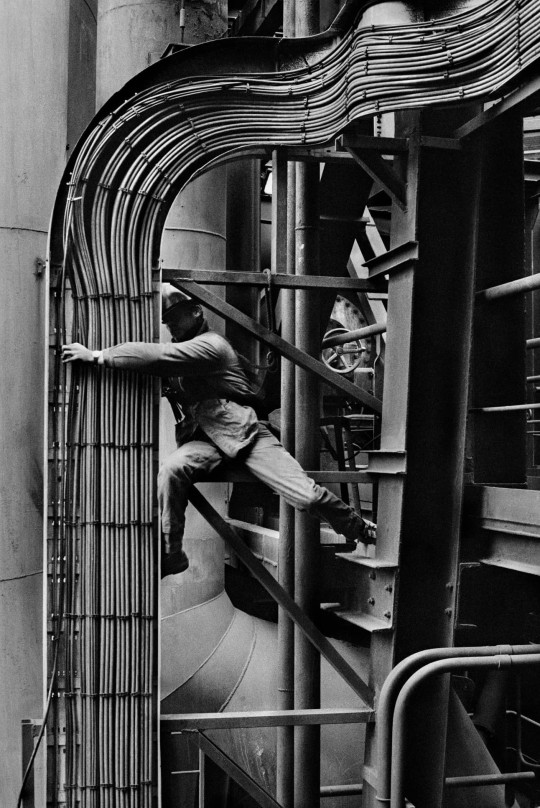
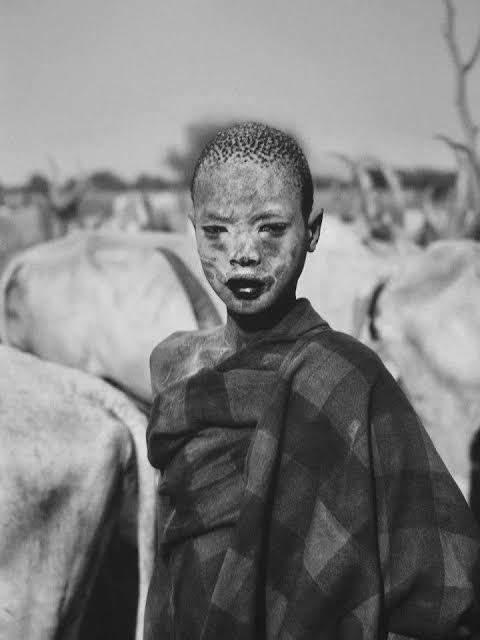
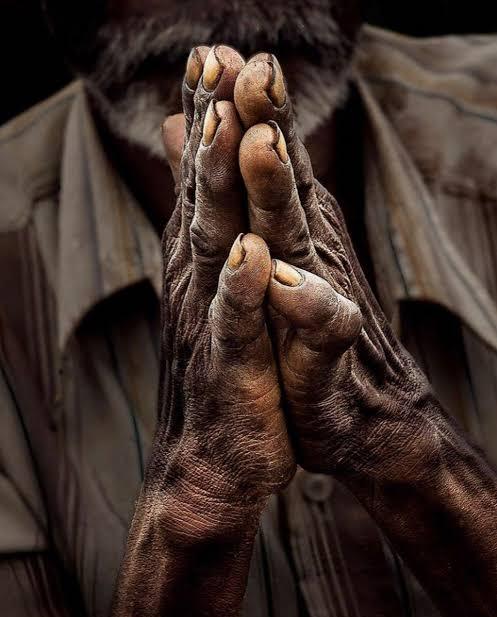
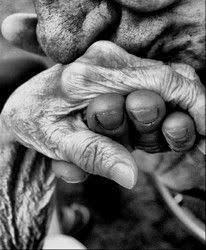
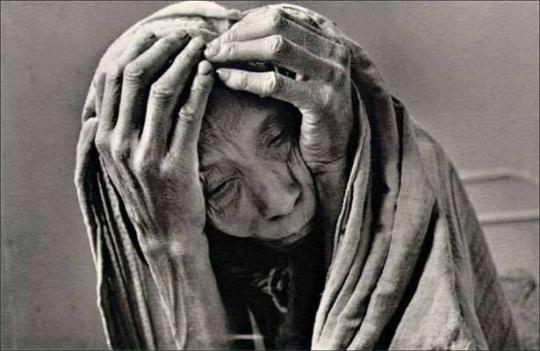

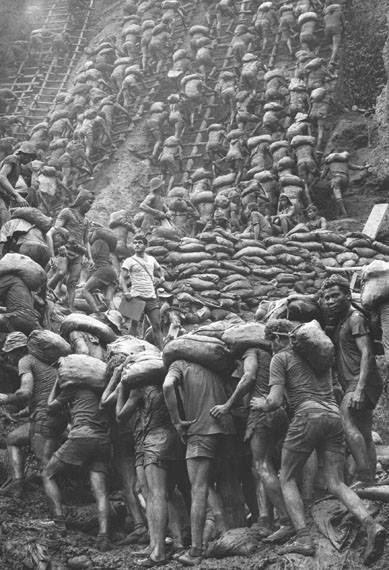
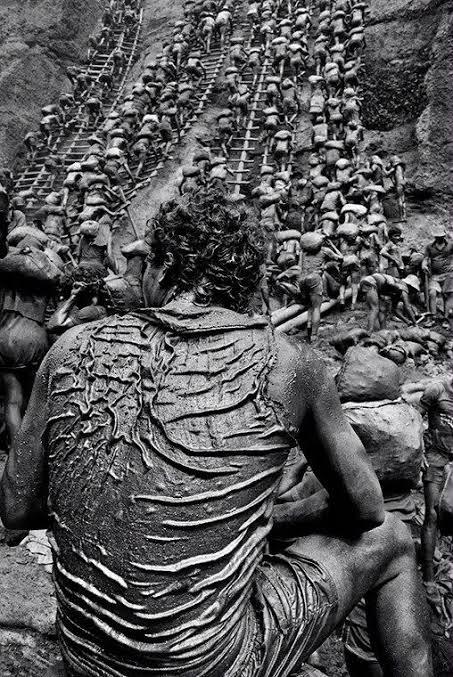
2 notes
·
View notes
Text
Gordon Freeman, Azeri Majima, Agent 48, Nostalgia Critic, the entire cast of TF2, truly a man of many trades.
This is my favorite stock photo guy He does everything







39K notes
·
View notes
Text

Sayyid Jamal al-Din "al-Afghani" Asadabadi
al-A`mal al-Kamilah
Sayyid Jamal al-Din Asadabadi (1838-1897) became renowned as "al-Afghani." Born into a Turkic-speaking Shi`ite family in a small Azeri town near Hamadan, he undertook some seminary studies in the 1850s at the Shi`ite shrine cities of Najaf and Karbala. There or earlier he came under the influence of the esoteric Shaykhi school of Shi`ism that had grown up around the theosophical teachings of Shaykh Ahmad al-Ahsa'i. Thereafter Sayyid Jamal al-Din always kept with him some of al-Ahsa'i's writings, and we may think of him as a reformist Shaykhi of the sort Azerbaijan often produced. In 1855 he then went to Bombay in British India in search of a modern education. He was there during the great uprising of 1857-1858. As a young man of 20, he was struck by the ways that Muslims and Hindus for a time successfully cooperated in opposing British domination, as well as by the obvious power of religion to mobilize local groups for anti-imperial purposes. He returned to the Iraqi shrine cities until 1865. In the late 1860s he served as an adviser to the king of Afghanistan, but lost out in faction fighting at the court. He went on to have a turbulent but influential career as a political thinker and activist and religious reformer in Istanbul, Cairo, Paris, Hyderabad and Tehran. He opposed Nasiru'd-Din Shah's award of a Tobacco Monopoly to a British concern in 1890. He spent the last years of his life in exile from Iran as a guest of Sultan Abdulhamid II, working with other expatriate Iranians on the Ottoman "Pan-Islamic" project aimed at bringing together all Muslims, including Shi`ites, around the sultan-caliph in order to oppose European Christian colonialism in Muslim lands. As late as the 1890s in Istanbul he was defending the ideas of Shaykh Ahmad al-Ahsa'i. For a fuller account and a brief bibliography, see Iraj Bashir, Jamal al-Din al-Afghani. See also Nikki Keddie's magisterial 1972 biography of him, and Juan R. I. Cole, "New Perspectives on Sayyid Jamal al-Din al-Afghani in Egypt," in Rudi Matthee and Beth Baron, eds., Iran and Beyond: Essays in Middle Eastern History in Honor of Nikki R. Keddie (Costa Mesa, Ca.: Mazda Publishers Inc., 2000), pp. 13-34.
Namih-ha-yi Tarikhi va Siyasi. Ed. Abu al-Hasan Jamali Asadabadi. Foreward by Muhammad Muhit Tabataba'i. (Tehran: Presto [Amir Kabir], 3rd edn., 1981). Digitally reprinted, East Lansing, Mi.: H-Bahai, 2001.
Related Works
Bustani, Butrus al-. Letter to Sayyid Jamal al-Din al-Afghani, 30 January 1879. (Presumably regarding his article on Babism for the Beirut Encyclopedia). Letter in Afghani Dossier of Egyptian National Library. Digitally printed in facsimile, East Lansing, Mi.: H-Bahai, 2001.
Ishaq, Adib. "Harakat al-Afkar" ("The Movement of Thought"). Misr (Cairo), 1878.
1 note
·
View note
Text
Events 11.26 (after 1950)
1950 – Korean War: Communist Chinese troops launch a massive counterattack (Battle of the Ch'ongch'on River and Battle of Chosin Reservoir) against United Nations and South Korean forces. 1965 – France launches Astérix, becoming the third nation to put an object in orbit using its own booster. 1968 – Vietnam War: United States Air Force helicopter pilot James P. Fleming rescues an Army Special Forces unit pinned down by Viet Cong fire. He is later awarded the Medal of Honor. 1970 – In Basse-Terre, Guadeloupe, 38 millimetres (1.5 in) of rain fall in a minute, the heaviest rainfall ever recorded. 1977 – An unidentified hijacker named Vrillon, claiming to be the representative of the "Ashtar Galactic Command", takes over Britain's Southern Television for six minutes, starting at 5:12 pm. 1979 – Pakistan International Airlines Flight 740 crashes near Taif in Mecca Province, Saudi Arabia, killing all 156 people on board. 1983 – Brink's-Mat robbery: In London, 6,800 gold bars worth nearly £26 million are stolen from the Brink's-Mat vault at Heathrow Airport. 1986 – Iran–Contra affair: U.S. President Ronald Reagan announces the members of what will become known as the Tower Commission. 1986 – The trial of John Demjanjuk, accused of committing war crimes as a guard at the Nazi Treblinka extermination camp, starts in Jerusalem. 1991 – National Assembly of Azerbaijan abolishes the autonomous status of Nagorno-Karabakh Autonomous Oblast of Azerbaijan and renames several cities with Azeri names. 1998 – Tony Blair becomes the first Prime Minister of the United Kingdom to address the Oireachtas, the parliament of the Republic of Ireland. 1998 – The Khanna rail disaster takes 212 lives in Khanna, Ludhiana, India. 1999 – The 7.5 Mw Ambrym earthquake shakes Vanuatu and a destructive tsunami follows. Ten people were killed and forty were injured. 2000 – George W. Bush is certified the winner of Florida's electoral votes by Katherine Harris, going on to win the United States presidential election, despite losing in the national popular vote. 2003 – The Concorde makes its final flight, over Bristol, England. 2004 – Ruzhou School massacre: A man stabs and kills eight people and seriously wounds another four in a school dormitory in Ruzhou, China. 2004 – The last Poʻouli (Black-faced honeycreeper) dies of avian malaria in the Maui Bird Conservation Center in Olinda, Hawaii, before it could breed, making the species in all probability extinct. 2008 – Mumbai attacks, a series of terrorist attacks killing approximately 175 citizens by 10 members of Lashkar-e-Taiba, a Pakistan based extremist Islamist terrorist organisation. 2008 – The ocean liner Queen Elizabeth 2, now out of service, docks in Dubai. 2011 – NATO attack in Pakistan: NATO forces in Afghanistan attack a Pakistani check post in a friendly fire incident, killing 24 soldiers and wounding 13 others. 2011 – The Mars Science Laboratory launches to Mars with the Curiosity Rover. 2018 – The robotic probe Insight lands on Elysium Planitia, Mars. 2019 – A magnitude 6.4 earthquake strikes western Albania leaving at least 52 people dead and over 1,000 injured. This was the world's deadliest earthquake of 2019, and the deadliest to strike the country in 99 years. 2021 – COVID-19 pandemic: The World Health Organization identifies the SARS-CoV-2 Omicron variant.
0 notes
Text
hatred against the Armenians is like "what if bigots hated someone just as much as they hated Jews, only the bigots couldn't even pretend to think they secretly ruled the world to justify it."
like there are a lot of ethnic grudges out there but other than antisemitism I can't think of any that are as vitriolic and shameless and as one-sided as Azeri - Armenian. the murder of Gurgen Margaryan by Ramil Safarov blows my fucking mind.
like one night at a NATO training exercise in Budapest an Azeri dude just axe-murders a sleeping Armenian soldier because he was Armenian. Hungary convicts him of murder and sentences him to life, Azerbaijan says he should serve his life sentence in his home country, and once extradited, he's immediately pardoned, promoted to major, named man of the year, thrown a parade.
for killing one Armenian in his sleep. like you cannot even pretend there's heroism in that. there's no "he was protecting us from the Armenian threat" or "he struck out against the secret Armenian menace oppressing us," he didn't even claim as such, he said "no I killed him because I hate Armenians and I decided to kill him when the two Armenians smiled at me at orientation. I woulda axe-murdered the other guy but his room was locked and everyone else was awake by then." he didn't even kill a bunch of Armenians, just the one!
Azerbaijan hates Armenia so fucking much that it's so utterly warped their perceptions that they thought "This dude who axe murdered an Armenian out of pure ethnic hate and got us in trouble with like every other country, let's definitely make a huge deal of what a hero he is and draw lots and lots of attention to how much we love anyone who kills an Armenian." The quotes about it are deranged! All these Azeri officials praise him, say justice has finally been restored and all things have been set right by letting this hero walk free, and don't even have an alternate story where they claim he was framed or defending himself or part of a larger noble struggle. Just "Yeah, he killed an Armenian, obviously that's good, I say this with no shame to an international news outlet because it's obviously uncontroversial!"
for fuck's sake, even Saudi Arabia and Iran and Iraq responded to the Oct. 7 attacks by saying "Hamas had to fight back against occupation, and didn't actually kill civilians." They had the bare minimum awareness to go "Wait! If I say this was good because killing Jews is obviously and uncontroversially good, I'm probably going to get in trouble. I should say something that would justify it in a moral framework that isn't 100% deranged, and say that it wasn't bad because the things that people agree are bad weren't present here."
President Ilham Aliyev: Armenia is actually a source of threat to the region
“Armenia is actually a source of threat to the region. The independent Armenian state is, in fact, a fascist state. Because, if this country has been led by proponents of fascist ideology for nearly 30 years, they have shaped this country the way they did,” the head of state pointed out. “We are neighbors with such a fascist state, and the threat of fascism is not going away. Therefore, fascism must be destroyed. Either the Armenian leadership will destroy it, or we will. We have no other choice,” the Azerbaijani leader added.
the EU, as a whole and as individual countries, has been wholly bought out by azerbaijan, both to enrich itself and for "strategic reasons," to isolate russia. ECHR rulings have been ignored, investigating teams purposefully don't do their work, charles michel and von der leyen shake aliyev's hand, and some states like italy have sold weaponry. notably, israel is a huge supporter of azerbaijan, selling a tremendous amount of arms and supplies (israel doesn't recognize the armenian genocide).
this is the most obvious, predictable, and therefore, in some sense, avoidable genocide looming on the horizon. it has been clear that azerbaijan aims to take syunik (the "zangezur corridor") first, then wipe armenia off the map, followed by ethnic cleansing. the morally-bankrupt values-oriented west is making zero attempt to stop what's coming, just as they didn't when it came to artsakh
178 notes
·
View notes
Text
Georgian President Salome Zourabichvili has condemned the alleged use of ethnic minorities to manipulate elections after a video surfaced showing a man dropping multiple ballots in a city largely populated by ethnic Azeris.
On Saturday, Georgians cast their votes in a parliamentary election depicted by both sides as an existential battle that will determine whether the country integrates closely with the West or leans back towards Moscow. The vote pits the ruling Georgian Dream party, in power since 2012, against four main blocs representing the pro-Western opposition. The incident, mentioned by Zourabichvili, reportedly took place in Marneuli, a southern Georgian city predominantly inhabited by Azeris. “...Very immoral to use an ethnic minority to rig the elections,” Zourabichvili wrote on X, sharing a video that shows a man dropping a handful of ballots into a ballot box.
Voting at the polling station was subsequently halted, reported Georgia’s private news agency, the InterpressNews.
The Central Election Commission said that the Ministry of Internal Affairs has initiated an investigation into the matter.
According to media reports, the polling station in Marneuli did not employ electronic vote counting.
For the first time this year, 90% of votes cast in Georgian parliamentary elections will be counted electronically.
At the close of the election, devices will print preliminary voting results. Votes will also be counted manually, and the final results will be based on these manual counts.
As of noon (GMT 0800) the voter turnout stood at 22%.
Polling stations will remain open until 8 p.m. local time (GMT 1600).
Reports of violence
Observers have also reported additional incidents and violations at polling stations, including instances of physical violence.
Commenting on such reports, Zourabichvili said: “Violence is occurring at various locations, journalists’ equipment has been broken. Groups have gathered to escalate the situation.”
The president urged the interior ministry to ensure that police respond more swiftly and effectively, adding that such tensions at polling stations cannot be allowed.
She also said that she was unable to get in touch with the interior minister.
Crackdown on foreign journalists
On Saturday, Swiss photojournalist Stephan Goss, who had arrived to cover the parliamentary elections, was denied entrance on arrival at the Tbilisi airport, and subsequently deported to Dubai.
Following the incident, Goss, who is accredited by the International Federation of Journalists, wrote on X: “On arrival my passport had clearly been flagged. They took it, I waited for 1.5h and then got paperwork saying I was denied entry and was being deported.”
Earlier this week, Georgian authorities also denied entry to Czech journalist Ray Baseley, who, after 34 hours of illegal detention at Tbilisi airport, flew to Warsaw on Thursday.
1 note
·
View note
Text



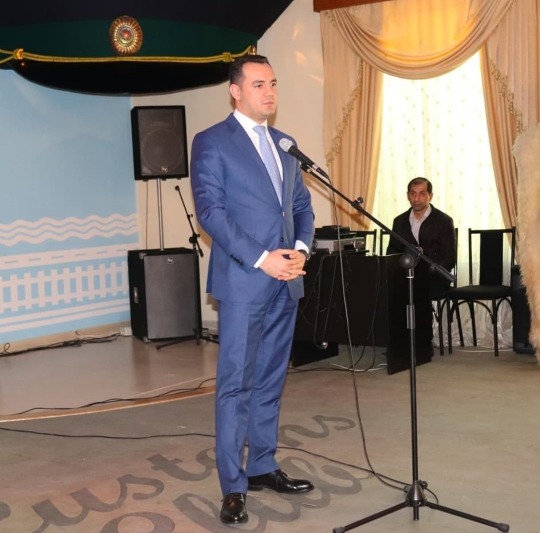






Ferhad Q...
Azerbaijani Businessman
#suit and tie#suited#men in suits#loafers#handsome#shoes#guys in suits#shiny shoes#turkish man#black shoes#azeri man#azerbaijan
25 notes
·
View notes